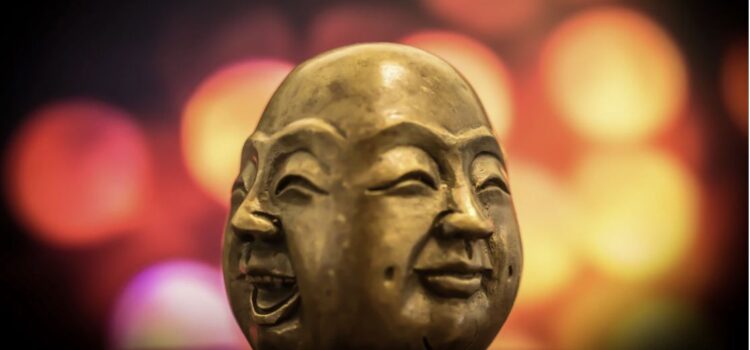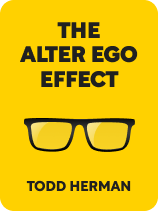

This article is an excerpt from the Shortform book guide to "The Alter Ego Effect" by Todd Herman. Shortform has the world's best summaries and analyses of books you should be reading.
Like this article? Sign up for a free trial here .
What is an alter ego? Why does Todd Herman recommend creating one?
In The Alter Ego Effect, athletic performance coach and leadership advisor Todd Herman reveals the trick that many professional athletes use to bring their A-game when it matters: adopting an alter ego. By doing this, you consciously decide which of your existing talents and skills to use to excel in your life.
Keep reading to learn more about alter egos and when you need one.
What Is an Alter Ego?
What is an alter ego? An alter ego is a science-backed tool that lets you adopt the traits, behaviors, and demeanor of a person who excels in a particular realm of your life (like your career or your social life). In practice, when using an alter ego, you set aside your usual mindset and behaviors and instead take on the mindset and behaviors of your alter ego. Though you still filter these through your personality, so you avoid “playacting” as your alter ego. For instance, to excel as a businessperson, you might adopt the alter ego of Martha Stewart. This way, you will negotiate shrewdly and confidently. If you’re a professional rower, your alter ego might be a graceful heron. Here you might take on the heron’s single-minded focus and gracefulness to succeed.
When you use an alter ego, you intentionally choose which of your existing traits you’ll draw on to succeed in a given situation. Normally, people don’t consciously choose what strengths they bring to bear in each situation they enter, which prevents them from doing their best.
(Shortform note: In The Compound Effect, Darren Hardy provides a reason why most people fail to consciously choose what strengths to rely on in a given situation: Most people let unconscious routines and habits dictate their behavior. This prevents them from intentionally considering the best approach to a situation or circumstance.)
Many high performers make a habit of using alter egos to consistently give peak performances, writes Herman. For instance, a world-class piano player might always adopt the alter ego of Wolfgang Amadeus Mozart when performing to ensure they can always play at their best.
Your Alter Ego Is an Authentic Version of You
Herman clarifies that an alter ego simply lets you unleash traits, abilities, and strengths you already possess but aren’t currently harnessing. At your core, you’re a creative, motivated, curious individual with huge potential. The only reason you don’t use this potential all the time is because of learned beliefs and behaviors that limit what you feel you can do. An alter ego lets you circumvent those limiting beliefs about yourself because you’re not being yourself: You’re being someone with positive beliefs about the world and themselves.
For example, you might have tremendous latent potential as a painter, but over the years, you’ve come to believe painting is a frivolous activity. Therefore, you rarely paint and when you do, you don’t try very hard. However, if you adopt the alter ego of Pablo Picasso, who believes painting to be a worthy pursuit, you don’t have to heed your own limiting beliefs about painting. This lets you unleash your full potential as a painter.
(Shortform note: While Herman advocates for using an alter ego to circumvent the learned beliefs about what you’re capable of, others encourage you to take a harder route: You must alter the learned beliefs about what you’re capable of by changing your identity, writes Tony Robbins in Awaken the Giant Within. In other words, Herman proposes a “shortcut” while Robbins proposes you make a fundamental, long-term change. Another difference between the authors’ views is that Herman believes you innately possess great potential (but aren’t tapping into it), while Robbins believes you may be missing certain innate traits and beliefs that lead to success and that you may need to expand your identity to include these.)
You Can Adopt Different Alter Egos in Different Areas of Your Life
Herman adds that you’ll need different alter egos for different realms of your life. This is because you have many roles, and only certain qualities serve you in each role. For instance, the traits that make you a good parent—patience, kindness, and a sense of humor—don’t make you a good drill sergeant.
(Shortform note: Code-switching is a form of adjusting to different roles in life, with a specific focus on adjusting speech, behavior, and appearance (rather than internal traits, which is what Herman mainly discusses). But while Herman frames adjusting to different roles as natural, code-switching is done mostly by marginalized groups as a way to gain equitable treatment often denied them.)
Alter Egos Systematically Requires a Sense of Play
Finally, Herman explains that all humans have the innate capacity to create and use alter egos and often already do so without knowing it. Humans are naturally creative and imaginative and don’t require a special ability to create alter egos. However, to successfully use alter egos in the systematic way Herman outlines, you must be willing to “play make-believe” and engage in creative exercises that might feel silly.

———End of Preview———
Like what you just read? Read the rest of the world's best book summary and analysis of Todd Herman's "The Alter Ego Effect" at Shortform .
Here's what you'll find in our full The Alter Ego Effect summary :
- What an alter ego is and why you should use one
- The steps of building, shaping, and unleashing your alter ego
- Why your alter ego is still authentically you






